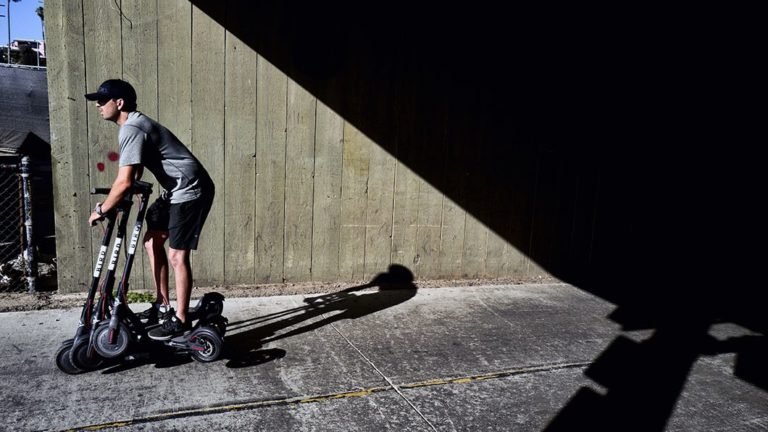In major urban centers across the globe, a handful of companies have deployed technology due to be one of the most innovative solutions to the mountains of traffic and mobility issues that plague our cities.
Electric scooters are smart mobility vehicles that offer a revolution in dealing with problems of traffic congestion and the “ last mile” problem.
As noted by innovation consultant Jeffrey Philips, electric scooters have proven to be successful where Segway, the two-wheeled self-balancing transporter first developed in 2001, failed.
They are cheap, small, emission-free, easy to use, and ubiquitous. The previous generation of Segways was a favorite tool of the 1 percent, priced high enough to lock out the average consumer, and too big to be left on busy corners.
Less than one year ago, however, that changed, as Silicon Valley entrepreneurs unveiled rentable electric scooters to disrupt the gridlock and fumes of car-congested streets.
The major players thus far are Bird, LimeBike, and Spin. The latter was purchased by Ford Motor Company earlier this month for close to $100 million.
But as with any innovation in transportation, the calls for regulation or outright bans have dampened the bright prospects scooters bring. And it’s not just the ire of Luddites.
San Francisco, where practically all electric scooter companies are based, banned all scooters from the streets in June. Only two major companies were given permits to operate again in late August. Seattle, one of the worst cities for traffic congestion, promptly banned them earlier this year, despite embracing dockless bicycles that use practically the same technology.
Similar to Uber and Lyft’s quick deployments in 2011-2012, the quick and stealthy unloading of hundreds of scooters overnight kept many cities scrambling to regulate. Cease and desist orders followed by the dozens.
Public safety, order, and taxation (not necessarily in that order) have been the key motivators for regulators. More often than not, cities claimed they weren’t asked permission.
Beverley Hills justified its swift ban due to a “concern for public safety and a lack of any advance planning and outreach by the motorized scooter companies.”
The “regulate first, innovate later” mentality will no doubt be an impediment to solving the issues that cities face across the country.
That said, problems exist. Riding at high speeds near cars and pedestrians without protection makes users susceptible to crashes and injuries. The class-action lawsuit filed in California by injured riders speaks to this. But if cities are able to accommodate bicycles, why wouldn’t they be able to do the same for electric scooters?
An oft-heard complaint is that scooter users ride on the sidewalk, ignore traffic signals, and abandon them in high-trafficked areas.
But that can be solved with smart regulation: Allow scooters to use bike lanes and park in bike areas. Provide clear guidance for riders and companies.
Bird and LimeBike require users to snap a picture when they park their scooter, ensuring it’s in a safe and legal area. Violators can be barred from the platform. That’s technology providing compliance rather than a bureaucratic rule.
When ridesharing apps such as Uber, Lyft, DriveNow, and Car2go hit the streets, detractors used similar arguments. Cities that embraced the technology, though, succeeded in removing cars off the street, reducing pollution, and offering new economic opportunities. Low-income communities saw a huge benefit.
Too often, studies on the effects of ridesharing examine what they aim to disrupt: single-car commuters, public transportation, and taxis. Rather than asking whether they affect specific industries, we should ask whether they are helping society at large. And by any objective measure, they are.
Most importantly, the new innovations on our streets are solving what civil and urban planners call the “ last mile” problem, the gap between where one mode of transportation leaves us and our final destination.
More often than not, the innovations that will solve problems in various strata of society will be the initiatives of private entrepreneurs and inventors. If cities want to embrace that positive change, they should pass reasonable and smart regulation on electric scooters.
Yaël Ossowski is a writer, consumer advocate, and deputy director at the Consumer Choice Center.
Published on Washington Examiner
